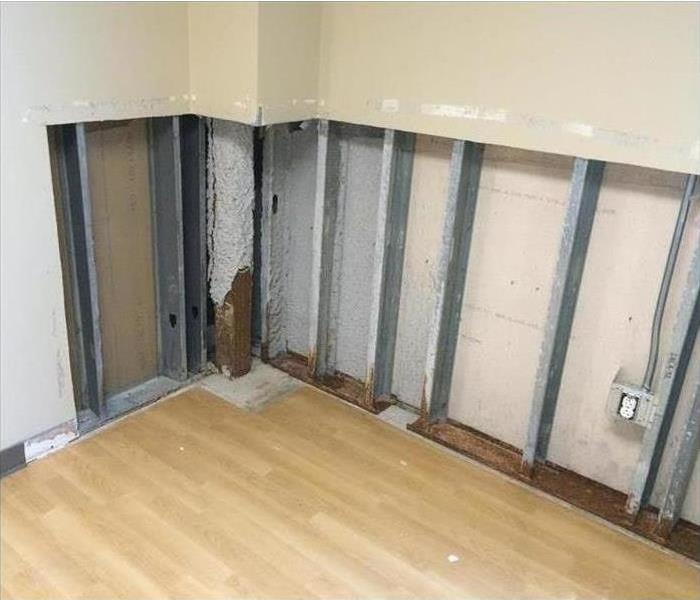Common Questions About Mold
8/17/2022 (Permalink)
Ways To Protect Your Commercial Property From Mold
Frequent inspection and upkeep in your building in Northwest Hills, TX, are the keys to keeping it structurally sound and maintaining good air quality. Hidden leaks and excess moisture, however, can quickly lead to mold growth. Knowing the answers to common questions about mold can help you protect your commercial property.
What Causes Mold Problems?
Just like other living organisms, mold needs food and drink to thrive. The main culprit in fungal growth in a commercial building is usually some type of unmitigated water damage:
- Busted pipe
- Supply line leak
- Overflowing toilet
- Clogged sewer line
- Storm flooding
Any surface exposed to excess moisture has the potential for mold to grow. Keeping watch for damp areas or damage is essential for stopping fungus in its tracks.
How Do You Know You Have a Mold Problem?
The first sign that there may be mold growth in your building is the telltale musty odor in your building. You may be able to see the mold on your walls, floor or ceiling. If you smell mold but can't find it, a professional inspection is necessary to locate the issue.
How Do You Get Rid of a Mold Problem?
If there is just a small patch of mold on a nonporous surface, washing it thoroughly with a strong detergent is likely to get rid of it. For large problems, however, you need to call mold remediation specialists for a thorough cleaning.
What Can You Do To Prevent a Mold Problem From Returning?
Controlling moisture is your best bet to keep mold from coming back. Even if you don't have water damage, high humidity can also cause mold to collect on surfaces and grow. Improve the ventilation throughout the building to encourage proper air flow, and invest in a dehumidifier if necessary.
Even with frequent inspection, you still could find the occasional patch of mold growth in your building. Quick, professional remediation is the best way to solve the problem and keep it from returning

 24/7 Emergency Service
24/7 Emergency Service
